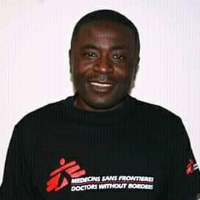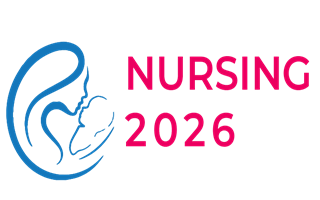3rd Global Summit on
Nursing and Midwifery
May 20-21, 2026 | Barcelona, Spain

Address: Avinguda Del Maresme 78 Ronda De Dalt Exit 15, 08940 Comellà de Llobregat, Barcelona, Spain
Nursing 2026

Public health literacy, Cameroon
Abstract:
Throughout the 21st century, the role of nurse has evolved significantly. Nurses work in a variety of settings, including the hospital, the classroom, the community health department, the business sector, home health care, and the laboratory. Although each role carries different responsibilities, the primary goal of a professional nurse remains the same: to be the client's advocate and provide optimal care on the basis of evidence obtained through research. Many nurses are involved in either direct patient care or administrative aspects of health care. Nursing research is a growing field in which individuals within the profession can contribute a variety of skills and experiences to the science of nursing care. In preparing future nurses who are competent to provide safe care, nursing education has an important role in developing knowledge, skills, and attitudes of nurses. This article aims to present important points about the incorporation of patient safety into the nursing education curriculum for improving patient outcomes. It is concluded that policy makers and educators should attend the development of necessary competencies in nurses, bring creativity into the style of patient safety education, and consider the cultural specific aspects of the phenomenon of patient safety during designing nursing education curricula. The application process, the various learning opportunities and responsibilities performed by the nurses, and the benefits and outcomes of the experience are described. The authors hope that by sharing their learning experiences, more nurses will be given similar opportunities using the strategies presented in this article. Nursing research is critical to the nursing education and is necessary for continuing advancements that promote optimal nursing care. The findings from this study provide some initial insights into the state of nursing education science in the Cameroon. Despite the small sample, the findings affirm the paucity of research in nursing education and that the discipline must attend to the developmental needs of nurse researchers who study phenomena related to nursing education.
Biography:
Dr. Kungeh Clement Gwe studied medical Biochemistry at the Yaoundé University 1, Cameroon and graduated with BSC and MPH in 1997 and 2005 at the University of Durbanwestville. He then joined the research group of Prof. Michael Rudolph at the Wits medical School, Johannesburg, South Africa .He received PhD degree in 2014 from the University of Ambrosiana, Milan, Italy. He has attended Similar course at Harvard medical school, John Hopkins University and many others .receive special award from books for peace from Milan ,Italy .Obtain my fellowship from Netherlands on M&E.Went bible school where he obtain a diploma in counselling.
